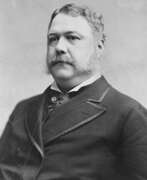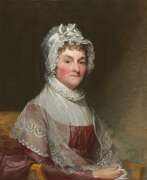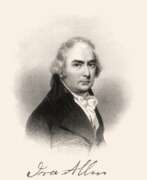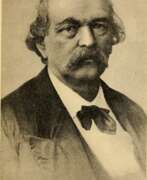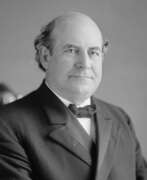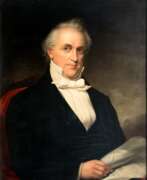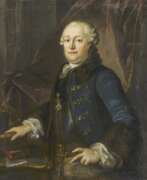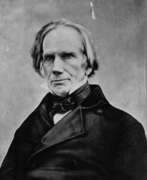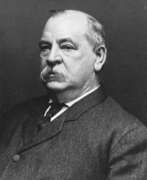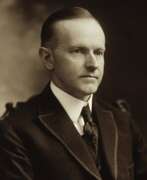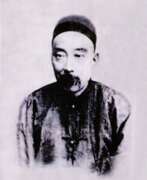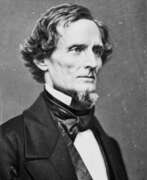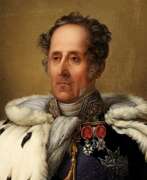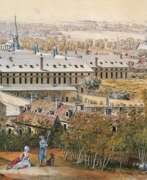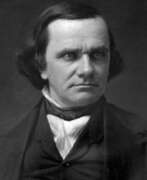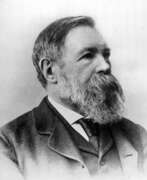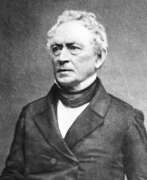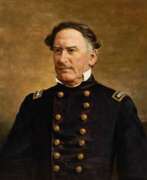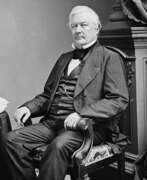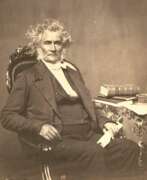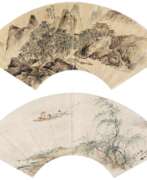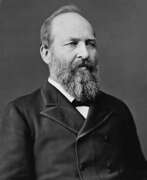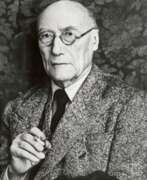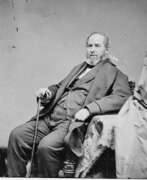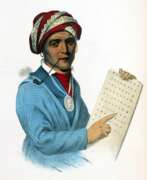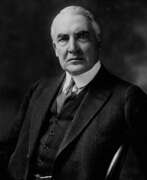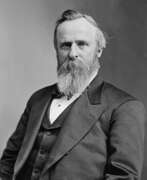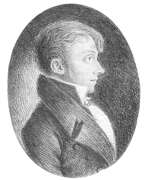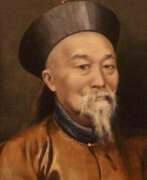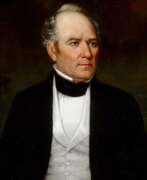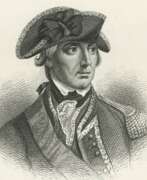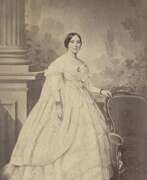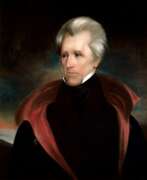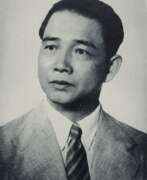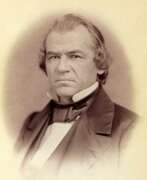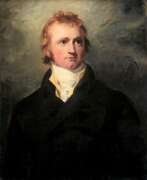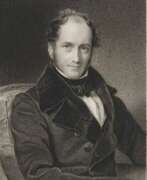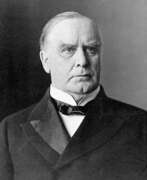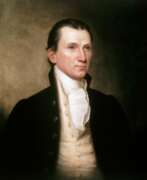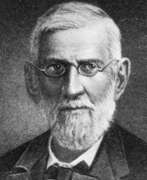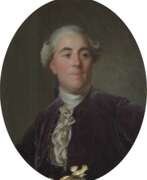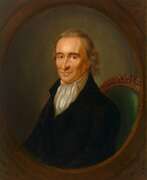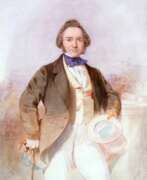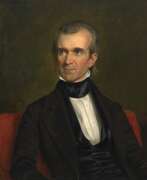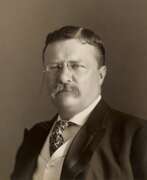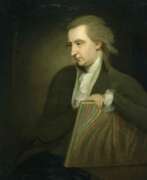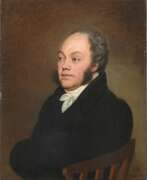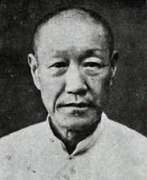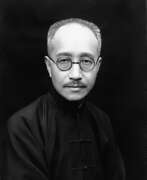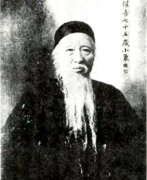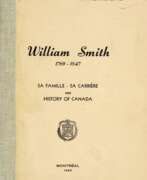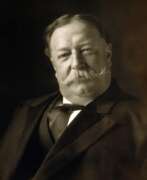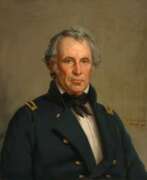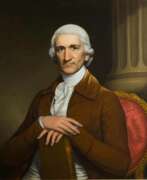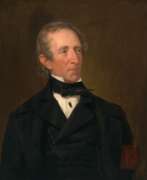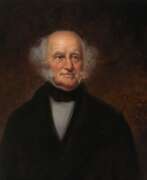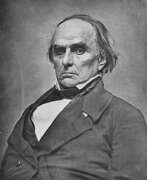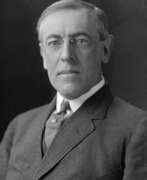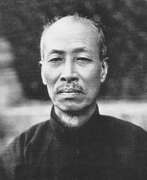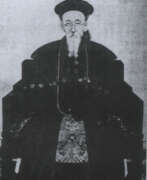Politicians 19th century
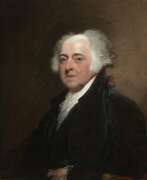

John Adams was an American statesman and politician and the second President of the United States (1797-1801).
The Adamses were among the first Puritan settlers in New England, and John's father was a farmer and shoemaker. John Adams graduated from Harvard College, taught grammar school in Worcester, Massachusetts, and then practiced law in Boston. In 1764, Adams married Abigail Smith, a minister's daughter, who became his confidante and lifelong political partner.
In 1765, Adams wrote "A Dissertation on Canon Law and Feudal Law," where he justified his opposition to British interference in the colonies. In the summer of 1774, Adams was elected to the Massachusetts delegation to the First Continental Congress, in which he became a major figure. He wrote Thoughts on Government as a basic guide to drafting new state constitutions. In July 1776, John Adams drafted the Plan of Treaties, which became the basis for the treaty with France and set the strategic priorities that would shape American foreign policy over the next century.
He was elected to the post of head of the War Council, in 1780 he became the author of the Massachusetts Constitution, which became a model for other states, in 1783 he signed the Treaty of Paris. From 1785 to 1788 John Adams served as the first American ambassador to Great Britain and proved himself worthy in this difficult situation, being the official embodiment of American independence from the British Empire. He studied European history extensively and the result was his three-volume book entitled A Defense of the Constitution of the Government of the United States of America (1787).
In 1789 Adams became the country's first vice president (Washington was the first president of the United States), and in 1797 he was elected the second president of the United States. However, his reign was not the best in the history of the new country. Deteriorating relations with France led to an undeclared naval war between the former allies. In 1798, Adams signed the controversial Alien and Sedition Acts, which restricted free speech rights. They met widespread opposition across the country. Adams resisted opposition demands for all-out war with France, but lost the 1800 election to Thomas Jefferson.
John Adams retired from politics and settled in his hometown of Quincy. He became the founder of an entire dynasty of politicians and died on July 4, 1826 (the 50th anniversary of the Declaration of Independence), living to see his eldest son John Quincy elected as the sixth president.
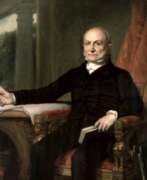

John Quincy Adams was an American politician and statesman, the sixth President of the United States (March 4, 1825 - March 4, 1829).
John Quincy Adams was the son of John Adams, the second President of the United States, and, of course, public service was his destiny. As a child, in 1778 he traveled to France with his father, who was then U.S. Commissioner to France. At the age of 14, Adams became personal secretary to Francis Dana, the U.S. Minister to Russia, serving as his father's secretary as well during the negotiation of the Treaty of Paris (1783). In 1787, the twenty-year-old Adams graduated from Harvard University and, after studying law, began practicing in Boston.
In addition to numerous diplomatic appointments, Quincy Adams served as a U.S. Senator from Massachusetts from 1803 to 1808. President James Madison appointed Adams U.S. minister to Russia in 1809, and Adams served until 1814. And under President James Monroe, he served as Secretary of State from 1817 to 1825 and is considered one of the best Secretaries of State in U.S. history.
John Quincy Adams won the 1824 presidential election in a four-way race against Henry Clay, William Crawford, and Andrew Jackson. As president, Adams supported a program to modernize the U.S. economy. But his popularity declined because of his approach to Native Americans, whom he supported against the demands of settlers from the west.
After losing the 1828 presidential election to Andrew Jackson, John Quincy Adams was elected to the House of Representatives, where he served as a representative from Massachusetts for the next 17 years. In the House of Representatives, Adams became one of the most vocal opponents of slavery. He consistently defended abolitionist views and policies, denouncing slavery as an immoral institution and attacking the interests of Southern slaveholders. During the U.S.-Mexican War of 1848, Adams was a leading opponent of the annexation of Texas, farsightedly predicting that it would lead to civil war.
After suffering two strokes, Adams died on February 23, 1848, at the age of 80. Had fate not predestined him to pursue politics, John Quincy Adams would have become a famous poet. He spent his life composing poems in various genres. After his death, many of his poems were collected and published in Poems on Religion and Society (1848).
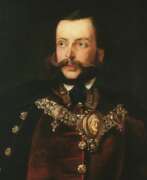

Manó Andrássy, full name Count Manó Andrássy de Csíkszentkirály et Krasznahorka was a Hungarian self-taught artist, caricaturist, and politician.
Count Mano Andrássy was an art collector, a member of the Hungarian Academy of Sciences, and a member of the Hungarian Parliament. He was at the origin of the Hungarian iron industry, developed iron ore mining and metallurgy, for his significant role in these endeavors he is still remembered by the name Iron Count.
Mano Andrássy left behind a diverse body of work. His caricatures of the vices of political and social life were known throughout the country. And drawings made during his travels to China and India were published in an album, he was elected a full member of the Hungarian Academy of Sciences.
He studied painting self-taught, and his most famous painting is a self-portrait. Andrássy was an avid art collector. He is also known as a philanthropist, and his collection of antiquities is part of the National Museum's collection.
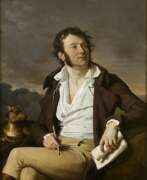

Antoine Vincent Arnault was a French playwright, fable poet and statesman.
Arnault was one of the most popular playwrights of the French Revolution and the First Empire and, like many writers of the time, he was also politically active. He carried out commissions for Napoleon Bonaparte and served him faithfully throughout his life.
Arnault wrote many plays and poems, among which his poem "Listok" about the fate of the emigrant was especially popular, it was repeatedly translated into different languages, including Russian.
His son was the playwright Lucien Arnault (1787-1863).
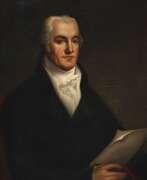

Joel Barlow was an American statesman, diplomat, French politician and poet.
A graduate of Yale University, he briefly served as a chaplain in the Revolutionary Army. In 1784, Barlow founded the American Mercury, a weekly newspaper in Hartford, Connecticut, and was admitted to the bar in 1786. Along with John Trumbull and Timothy Dwight, he was a member of the Hartford Witters, a group of young writers.
Joel Barlow's fame was brought to him by his poetic work The Vision of Columbus (1787). It is a dialog between Christopher Columbus and an angel and covers the entire history of America to the end of the American Revolution. The poem was signed by many leading figures of the time, including George Washington and Benjamin Franklin, and was popular on both sides of the Atlantic. The author later reworked the poem into a more cynical epic called Columbiad.
In 1788, Barlow traveled to France as an agent for the Scioto Land Company and persuaded a group of Frenchmen to emigrate to America, who eventually founded the town of Gallipolis, Ohio. In Paris he became a liberal in religion and an advanced republican in politics; he took part in the French Revolution and was granted French citizenship.
In the literary field, Barlow is also known for his work The Hasty Pudding (1796). It is a humorous poem inspired by a longing for New England and cornmeal, containing vivid descriptions of rural scenes.
In 1795-97. Barlow was sent to Algeria on a diplomatic mission and returned to the United States in 1805. In 1811 he was appointed U.S. plenipotentiary to France. Barlow participated in Napoleon's retreat from Russia and died in Poland.
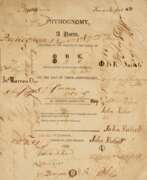

Joseph Bartlett was an American lawyer, politician, and poet.
Bartlett graduated from Harvard and began his law practice in Woburn. In 1782, he was elected a member of the Harvard chapter of the PBK. In 1803 he moved to Saco, Maine, where he was elected state senator the following year.
Joseph Bartlett was a man of eccentricity, with a very peculiar taste. His charisma and sharp wit ensured the success of his lectures. Bartlett is the author of the satirical poem Physiognomy, a Poem (1799).
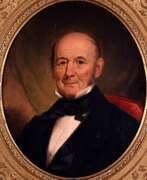

Abijah Bigelow is an American legislator, U.S. Representative from Massachusetts, poet and publicist.
Bigelow attended Dartmouth College in Hanover and became a lawyer. Between 1810 and 1815, he represented Massachusetts in the U.S. House of Representatives, where he strongly opposed the War of 1812. He also served as a justice of the peace from 1809 until his death.
As an author and poet, Bigelow published his work in Worcester newspapers throughout his life. Six essays entitled "Political Reflections" were published in the Massachusetts Spy in 1812, and a series of articles on slavery, signed by him as "The Unprofessional," were printed in the Worcester Palladium in 1838. Bigelow was also a member of the American Antiquarian Society.
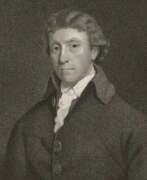

John Cartwright was an English naval officer, Nottinghamshire militia major and prominent campaigner for parliamentary reform. He subsequently became known as the Father of Reform. His younger brother Edmund Cartwright became famous as the inventor of the power loom.
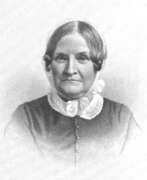

Lydia Maria Child, née Francis, is an American writer and journalist, women's rights and Indian rights activist, and a prominent abolitionist.
Lydia Francis was born into a family of abolitionists, which shaped her worldview. From the age of 18, she taught, wrote historical novels and in 1826 founded a periodical for children "Juvenile Miscellany".
Her first novel, Hobomock, was published in 1824 - set in colonial New England and based on the marriage of a white woman, Mary Conant, and a Native American named Hobomock. In 1833, Lydia Child published An Appeal in Favor of the Class of Americans Called Africans, which recounted the history of slavery and decried the educational and employment inequalities of the black population in the United States. As a result, she was expectedly publicly condemned and her magazine collapsed. But this book united and empowered like-minded people in the abolitionist movement.
On the subject of inequality, Lydia Child wrote throughout her life, and she also spoke out on behalf of Native American peoples. In 1861, "Incidents in the Life of a Slave Girl" was published. Her many books also include Flowers for Children (1844-47), Facts and Fictions (1846), The Freedmen's Book (1865), and An Address to the Indians (1868).
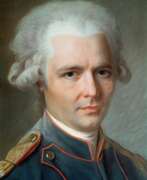

Pierre Choderlos de Laclos, full name Pierre Ambroise François Choderlos de Laclos, was a French politician, inventor, military leader, and writer.
De Laclos initially pursued a military career, but soon abandoned it, deciding that he would achieve greater fame by becoming a writer. He wrote poetry, erotic stories. His first novel "Dangerous Liaisons" (Les Liaisons dangereuses, 1782) immediately made a great impression and caused a mixed reaction in society. This is one of the masterpieces of novelistic literature of the XVIII century, which describes the love affairs of the aristocracy. On its motives, a large number of commentaries were later written, plays were staged and movies were filmed.
Later, Pierre Choderlot de Laclos worked for some time as secretary to the Duke of D'Orleans, writing several treatises on military and political topics. And in 1792 he again joined the army, where under Napoleon he rose to the rank of general, participated in the Rhine and Italian campaigns.
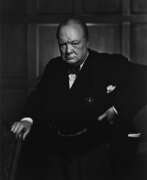

Sir Winston Leonard Spencer Churchill was a British statesman, soldier and writer who served as Prime Minister of the United Kingdom from 1940 to 1945, during the Second World War, and again from 1951 to 1955. Apart from two years between 1922 and 1924, he was a Member of Parliament (MP) from 1900 to 1964 and represented a total of five constituencies. Ideologically an economic liberal and imperialist, he was for most of his career a member of the Conservative Party, which he led from 1940 to 1955. He was a member of the Liberal Party from 1904 to 1924.
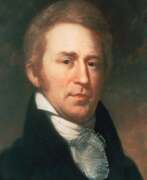

William Clark, an American frontiersman, is best known for co-leading the epic Lewis and Clark Expedition alongside Meriwether Lewis from 1804 to 1806. This journey was a monumental exploration of the American West, extending to the Pacific Northwest, which laid the foundation for westward expansion and significantly contributed to the nation's knowledge of the vast territory.
Before his fame as an explorer, William Clark had a substantial military career, beginning with his service in the militia and the U.S. Army during the Northwest Indian War. His experiences in the military, including participation in the Battle of Fallen Timbers, honed his leadership and survival skills, which were crucial for the success of the Lewis and Clark Expedition.
Following the expedition, William Clark continued to serve in significant roles, including as the governor of Missouri Territory and as a superintendent of Indian Affairs. His later years were dedicated to managing relations with various Native American tribes, navigating the complexities of the expanding American frontier.
For collectors and experts in art, history, and antiques, William Clark's life and contributions offer a fascinating lens through which to explore the early 19th-century American narrative. His maps, journals, and other related artifacts provide a unique perspective on this formative period in U.S. history.
To stay informed about new discoveries, exhibitions, and auction events related to William Clark, consider subscribing for updates. This subscription will provide you with valuable insights into the lasting impact of Clark's legacy on American culture and history.
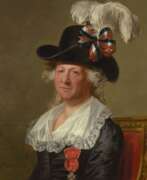

Charles d'Éon de Beaumont, known as Chevalier d'Éon and with many other names, was a French nobleman, diplomat, and secret agent who belonged to the Royal Secret diplomatic network. This amazing and versatile man was forced to live the second half of his life as a woman by virtue of his activities.
D'Eon participated in the Seven Years' War and spied for France while in Russia and England. In France and England he was known for his adventurous life and his many talents: he was an ambassador and secret agent in the service of Louis XV, a captain of dragoons during the Seven Years' War, a skilled swordsman, and a man of letters. After several missions to Russia, more often under the guise of a woman, he was sent to London in 1762 to assist the ambassador in the peace negotiations with England. For his contribution to the Treaty of Paris, signed the following year, he became a Knight of the Order of Saint Louis.
Needing money, and in order to receive a pension, he increasingly entered the role of a woman. In 1777 he received an order: "By order of the King: Charles-Geneviève-Louise-Auguste-Andrée-Timotheus d'Eon de Beaumont is ordered to remove the dragoon uniform she wears and to dress in accordance with her sex. Henceforth he always wore women's dress. Returning to London in 1785, d'Eon died there 25 years later. An autopsy conducted two days after his death found him to be male.
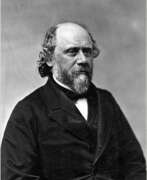

Richard Henry Dana Jr. was an American lawyer, politician, and writer, and a prominent abolitionist.
His father was the Romantic poet and critic Richard Henry Dana Sr. (1787-1879). Richard Jr. did not finish his studies at Harvard College and went to California as a sailor. Two years later, having gained a wealth of experience, he completed his studies and became head of the American bar, an expert on maritime law and an advocate for the rights of merchant seamen.
In 1840, Dana published his autobiographical book Two Years to the Mast, which immediately gained wide popularity. Dana's description of his voyage to California, which was virtually unknown to Americans at the time, became the best contemporary description of the territory captured by the United States just a few years later. He describes the lives of sailors in the ports and their work processing hides on the coast, and pays close attention to the daily lives of the peoples of California, including Hispanics, Native Americans, and Europeans.
In 1841, Dana published The Seafarer's Friend, which became the standard reference book on the legal rights and responsibilities of seamen. He defended many ordinary seamen in court. Despite vigorous opposition, Dana provided free legal aid to blacks as well. Both as a writer and a lawyer, he was a defender of the oppressed, from sailors to runaway slaves and freedmen.
He was U.S. Attorney for the District of Massachusetts from 1861 to 1866 and a member of the Massachusetts legislature from 1867 to 1868.
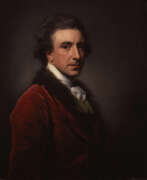

Nathaniel Dance-Holland is a British portrait painter and politician.
Dance-Holland studied painting in Italy. There he painted several historical and classical paintings. Upon his return to England, he became a successful portrait painter.
Nathaniel Dance-Holland was one of the founders of the Royal Academy of Arts and a member of the British Parliament.
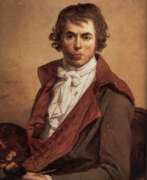

Jacques-Louis David, a preeminent French artist of the Neoclassical movement, made a profound impact on the art world with his compelling history paintings and portraiture. Born in Paris in 1748 into a prosperous family, David's early life was marked by tragedy and ambition. Despite losing his father at a young age and facing opposition from his family, his determination to pursue art led him to become a student of Joseph-Marie Vien and later, a notable figure in the French Academy in Rome. David's artistic journey was characterized by a rigorous classical education, culminating in winning the prestigious Prix de Rome in 1774, which allowed him to study the masterpieces of classical antiquity and the Renaissance in Italy.
David's work is renowned for its classical austerity, a response to the frivolous Rococo style that preceded him. His paintings, such as "The Oath of the Horatii," reflect a blend of classical themes with a modern sense of emotion and drama, resonating with the revolutionary spirit of his times. As the French Revolution unfolded, David aligned himself with its ideals, becoming an active supporter and using his art to serve political purposes. He was closely associated with leaders of the Revolution, including Maximilien Robespierre, and later became the official painter of Napoleon, contributing significantly to the iconography of the era.
Throughout his career, David had a significant influence on French art, not only through his own works but also as a teacher. His studio was a nurturing ground for the next generation of French painters, despite his reputation for being demanding. David's move to Brussels after the fall of Napoleon marked the final phase of his career, where he continued to paint until his death in 1825.
David's legacy extends beyond his contributions to Neoclassical art. He played a crucial role in the development of modern art history, blending classical ideals with contemporary themes, and influencing not only his contemporaries but also future generations of artists. His works, housed in museums around the world, continue to be studied and admired for their technical mastery and emotional depth.
For art collectors and experts, David's oeuvre offers a fascinating insight into a transformative period in art history, where the classical and the contemporary intersected to create a new visual language. His paintings not only depict historical and mythological scenes but also embody the ideals, struggles, and aspirations of his time.
For those interested in exploring the works of Jacques-Louis David and the impact of his art on the Neoclassical movement, updates on new product sales and auction events related to David's work can provide valuable opportunities to engage with his legacy. Signing up for updates ensures access to the latest information and events, offering a deeper understanding of this pivotal artist's contributions to art and culture.
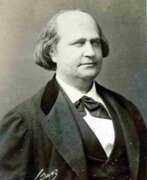

Charles Leconte de Lisle, full name Charles Marie René Leconte de Lisle, was a French poet and politician, head of the Parnassus poetic movement.
He was a member of the Revolution of 1848 and initiator of the law on the abolition of slavery in the colonies. As a poet, he was highly regarded by his contemporaries, including Victor Hugo. Leconte de Lisle's poems are characterized by a clear, sculptural, "objective" form. He translated into French a number of classical Greek works.
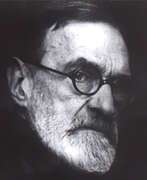

Pedro Figari was a Uruguayan painter, lawyer, writer, and politician. Although he did not begin the practice until his later years, he is best known as an early modernist painter who emphasized capturing the everyday aspects of life in his work. In most of his pieces, he attempts to capture the essence of his home by painting local customs that he had observed in his childhood.
Figari painted primarily from memory, a technique that gives his work a far more personal feeling. With his unique style, which involved painting without the intention to create an illusion, he, along with other prominent Latin-American artists such as Diego Rivera and Tarsila do Amaral, sparked a revolution of identity in the art world of Latin America.
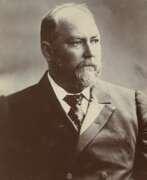

Sir John Forrest was an Australian naturalist, traveler and politician.
He worked as a surveyor and led several exploratory pioneering expeditions to western Australia. On his second voyage in 1870-1871, Forrest made an instrumental survey of the entire southwest coast of Australia from Perth to Adelaide. He later served as Australia's Minister for Defense, and as the first Premier of Western Australia (1890-1901), Forrest sponsored the construction of public works and negotiated the state's entry into the Commonwealth of Australia in 1901.
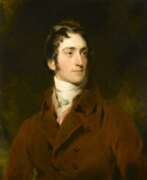

Robert Frankland was a British politician and artist.
He was elected to Parliament in 1815 and succeeded his father as a baronet, taking the name Sir Robert Frankland-Russell, seventh baronet. He was also High Sheriff of Yorkshire. Frankland was fond of painting and drew watercolors with hunting scenes and horses. His sketches of human figures are also interesting.


Philip Morin Freneau was an American publicist, editor, and known as the "poet of the American Revolution".
After graduating from Princeton University, Freneau taught school and studied to become a minister. With the outbreak of the American Revolution, he began writing scathing satire on the British and the Tories. During a two-year voyage to the Caribbean islands, he created the poems "The Beauties of Santa Cruz" and "The House of Night," and in 1778 he became involved in the war. After his release from British captivity, Freneau wrote a book in verse, "The British Prison Ship" (1781).
After serving as a sea captain for several years, Freneau took up journalism. In his National Gazette newspaper in Philadelphia, he sharply criticized George Washington.
Freneau's poetry, which accompanied him throughout his life, covers a variety of subjects, including political situations, American Indians, nature, the sea, and naval battles. His political poems are often satirical, but his nature poems are very lyrical.
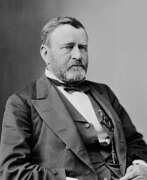

Ulysses S. Grant, born Hiram Ulysses Grant, was an American politician and military leader who was the 18th President of the United States (March 4, 1869 - March 4, 1877).
Grant's father was a tanner and enrolled his son in the United States Military Academy at West Point, New York. Ulysses Grant distinguished himself in the Mexican-American War, then fought in the Civil War, was a brigadier general, and was given command of the District of Southeast Missouri. In March, 1864, Grant became lieutenant general and was given command of all the armies of the United States. In 1866, he was promoted to the newly established rank of general in the U.S. Army.
Grant continued as commander-in-chief after Lincoln's assassination and during the administration of U.S. President Andrew Johnson. However, the situation was such that Ulysses Grant won the next presidential election and became the 18th President of the United States on March 4, 1869. He was politically inexperienced and personally clean, but his time as president was marked by corruption and scandals. During his two presidential terms, Grant worked hard to re-unite the North and South, opposing the nascent Ku Klux Klan.
In 1877, after leaving the presidency, Grant traveled around the world with his wife, and everywhere he was received with glee. Then his attempts at business led to complete bankruptcy. Ulysses Grant spent the last years of his life writing his memoirs while battling poverty and throat cancer. With the help of writer Mark Twain, his two-volume work was published in 1885, two months before the author's death.
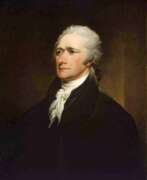

Alexander Hamilton was an American politician and statesman, the founder of the American financial system.
A native of Great Britain, Hamilton arrived in continental America in late 1772 and enrolled at King's College in New York. He became captain of an artillery company in 1776 and fought in the battles of Kips Bay, White Plains, Trenton, and Princeton during the American War of Independence. For four years he served on George Washington's staff as adjutant with the rank of lieutenant colonel. And in 1782, Hamilton was chosen by New York as a delegate to the Confederate Congress.
Alexander Hamilton was also one of New York's delegates to the Constitutional Convention in Philadelphia in 1787. He was a passionate advocate of the Constitution and, along with future President James Madison and John Jay, contributed to the famous book The Federalist (1788), writing most of the essays for it. After George Washington was elected the nation's first president in 1789, he appointed Hamilton Secretary of the Treasury. As the first Secretary of the Treasury (1789-1795), Hamilton developed plans to finance the national debt, secure federal credit, encourage the expansion of manufacturing, and organize a federal bank. In 1801, Hamilton founded the New York Evening Post newspaper.
On July 11, 1804, Hamilton was mortally wounded in a duel with his personal and political rival, Vice President Aaron Burr. Today, Alexander Hamilton is revered as one of the founding fathers of the United States, he is known for his role in creating America's financial system, and his portrait is on the ten dollar bill.
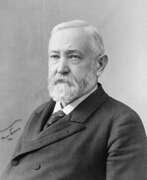

Benjamin Harrison, the 23rd President of the United States, served from 1889 to 1893 and left a distinct mark on American history. Born into the prominent Harrison family of Virginia, he was the grandson of William Henry Harrison, the ninth president, and the great-grandson of Benjamin Harrison V, a Founding Father. Harrison was known for his commitment to civil rights and played a pivotal role in promoting American commerce and industry.
After graduating from Miami University in Ohio, Harrison moved to Indianapolis, where he established a notable legal career and became a leader in the local Presbyterian church. His military service during the American Civil War, where he achieved the rank of brevet brigadier general, showcased his leadership and commitment to the Union. Following the war, Harrison's political career began to take shape as he served in the U.S. Senate from 1881 to 1887, where he advocated for homesteaders, Native Americans, and Civil War veterans.
Benjamin Harrison's presidency was marked by significant legislative achievements, including the Sherman Antitrust Act, which aimed to curb the powers of large business monopolies, and the McKinley Tariff, which imposed protective trade rates. He also made substantial efforts to strengthen the U.S. Navy and modernize its capabilities, reflecting his interest in an active foreign policy.
Despite losing the popular vote in the 1888 election, Benjamin Harrison won the Electoral College, highlighting the contentious nature of his victory over Grover Cleveland. His administration was notable for the admission of six new western states to the Union and significant economic legislation that led to federal spending reaching one billion dollars for the first time.
Benjamin Harrison's post-presidency years were spent in Indianapolis, where he continued to practice law and engaged in international diplomacy, notably representing Venezuela in a boundary dispute with Great Britain. His commitment to public service and the legal profession remained evident until his death in 1901.
For collectors and experts in art and antiques, Harrison's era offers a fascinating glimpse into a period of rapid economic and political change in America. To stay informed about new discoveries and interpretations related to Benjamin Harrison and this transformative time in history, signing up for updates is recommended. This subscription will alert you to new product sales and auction events related to this significant historical figure, providing a unique opportunity to deepen your understanding of American history.
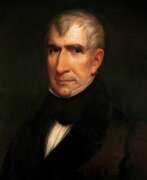

William Henry Harrison, an American military officer and politician, became the ninth President of the United States in 1841, making history with the shortest presidency due to his death just 31 days after taking office. Born on February 9, 1773, in Charles City County, Virginia, Harrison was the last U.S. president born as a British subject and the paternal grandfather of Benjamin Harrison, the 23rd president.
William Henry Harrison's early military career was marked by notable achievements, including participating in the Battle of Fallen Timbers in 1794, which concluded the Northwest Indian War. His leadership against Tecumseh's confederacy at the Battle of Tippecanoe in 1811 earned him the nickname "Old Tippecanoe." He was later promoted to major general during the War of 1812, securing a significant victory at the Battle of the Thames, which effectively ended the Indian confederation led by Tecumseh.
Before his presidency, William Henry Harrison had a prolific political career, starting in 1798 when he became the secretary of the Northwest Territory. He was then elected as the territory's delegate to the U.S. House of Representatives in 1799. In 1801, he became the governor of the Indiana Territory, where he negotiated numerous treaties with Native American tribes, acquiring vast tracts of land for the United States. Harrison's political journey also included terms in the U.S. House of Representatives, the Senate, and as the U.S. Minister to Colombia before being nominated by the Whig Party for the presidency in 1840.
His presidential campaign was famous for the "Log Cabin Campaign," where Harrison was presented as a man of the people, in stark contrast to the incumbent President Martin Van Buren, who was portrayed as an elitist. This strategy proved successful, and William Henry Harrison won the presidency with a significant margin. However, his time in office was cut short when he died of presumed pneumonia, making his wife, Anna Harrison, the first presidential widow to receive a pension from Congress.
Harrison's legacy is complex, marked by his military and political contributions that significantly impacted the United States' expansion and development during its early years.
For those interested in learning more about William Henry Harrison, signing up for updates is a great way to stay informed about new discoveries and interpretations of his life and contributions to American history. This subscription will alert you to new product sales and auction events related to this significant historical figure, providing a unique opportunity for collectors and experts in art and antiques to deepen their understanding of American history.
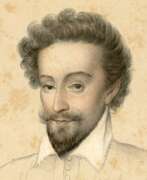

Armand-Gustave Houbigant was a French painter, illustrator, historian, politician and perfumer.
Armand-Gustave was the son of the famous Parisian perfumer Jean-François Houbigant (1752-1807). He took lessons in the atelier of David's pupil A.C. Caraffe and was a close friend of the archaeologist and collector Aubin-Louis Millin. Ubigan was a prolific painter and illustrator. As a young man, he became famous for his drawings for the card game Women of France (1816).
Later, from 1850 to 1855, Houbigant traveled to the Bas-Pyrenees (today the Atlantic Pyrenees), collected materials for an album about the youth of King Henry IV, and made sketches and engravings.
After his father's death, Armand-Gustave Houbigant continued his family's perfumery business.
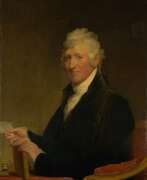

David Humphreys was an American soldier, statesman, diplomat, writer, poet, and biographer.
He received his bachelor's degree from Yale University, where he became a member of the Hartford Witters and taught, and went to serve in the Continental Army in the summer of 1776.
A close friend and aide to George Washington, Humphreys was an eyewitness and active participant in the early years of the United States. During his long career, Col. David Humphreys served as a soldier, secretary, diplomat, and was a writer, poet, orator, biographer, and industrialist. His speeches, poems, literary works, and correspondence with Washington and others of the founding generation serve as a valuable source for historians of the early republic in the late eighteenth and early nineteenth centuries.
Because of his intelligence and diligence, David Humphreys had a long record of service and held many public offices, among others serving as U.S. minister to Spain from 1797 to 1801. He was a member of the Royal Society of London and the American Antiquarian Society.
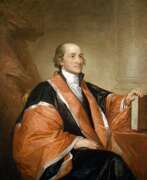

John Jay was an American lawyer and diplomat, statesman, and one of the founding fathers of the United States.
Jay came from French Huguenots, after graduating from King's College (now Columbia University) he entered law school and was admitted to the bar in 1768. After the outbreak of hostilities in the spring of 1775, Jay continued to serve both in New York and in the Continental Congress, which elected him president in late 1778.
In the fall of 1779 he was appointed minister plenipotentiary to Spain, which had recently entered into an alliance with France against England. In May 1782 he traveled to Paris, where a treaty was concluded that formally ended the war with Great Britain in 1783. Before returning to America in July 1784, Jay was appointed secretary of foreign affairs.
In 1788, Jay actively advocated for the ratification of the U.S. Constitution by the state of New York. Together with future President James Madison and economist Alexander Hamilton, he participated in the creation of the famous book The Federalist (1788). Under the new Constitution, President Washington appointed John Jay Chief Justice of the United States in 1789, and in July 1795 he became Governor of New York. After completing his second term as governor in June 1801. Jay retired to his farm in Bedford, New York.
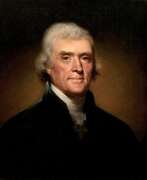

Thomas Jefferson was an American politician and statesman, the third President of the United States (March 4, 1801 - March 4, 1809).
Jefferson was the son of a planter and received a law degree. In 1774, he wrote A Summary of the Rights of British America, which attracted public attention, and he soon gained a reputation as one of the first advocates of American independence from the authority of the British Parliament. In the spring of 1775, the Virginia legislature appointed him a delegate to the Second Conference of the Continental Congress. A year later he was appointed to a committee of five, which also included Adams and Benjamin Franklin, to draft a formal statement of reasons to justify a break with Great Britain. Jefferson thus became one of the authors of the Declaration of Independence. Jefferson succeeded Benjamin Franklin as minister to France in 1785, was secretary of state (1790-1793) under Washington, and vice president (1797-1801) under John Adams.
A Democratic-Republican, Jefferson, who believed that the national government should play a limited role in the lives of citizens, was elected president in 1800. One of the most significant accomplishments of Jefferson's first administration was the purchase of the Louisiana Territory from France for $15 million dollars in 1803 (from the Gulf of Mexico to present-day Canada), effectively doubling the size of the United States. During his second term, Jefferson was focused on trying to keep America out of the Napoleonic Wars in Europe. After his second term as president, he was succeeded by James Madison in 1808.
Upon leaving office, Jefferson retired to his plantation in Virginia, pursued his favorite pastimes, and helped found the University of Virginia. In addition to politics, he is known as a writer, farmer, horticulturist, inventor, book collector, art historian, architect, and scientist. He died at the age of 83 on July 4, 1826, the 50th anniversary of the Declaration of Independence.
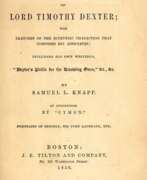

Samuel Lorenzo Knapp is an American author and lawyer and politician.
Knapp graduated from Dartmouth College and eventually became a prominent lawyer, holding a Juris Doctor degree. He was a representative in the Massachusetts legislature from 1812 to 1816, and in 1814 joined the American Antiquarian Society.
In 1824 Knapp became editor of the Boston Gazette and also kept the Boston Monthly Journal. In 1826 he founded the National Republican Party, which collapsed two years later, and returned to practicing law in New York City. Knapp published various biographical studies as well as many public discourses on politics and society.
In 1818 his fiction Ali Bey (Excerpts from a Journal of Travels in North America, consisting of descriptions of Boston and its environs) was published. It is a sort of diary of a fictional Ottoman spy who travels in America disguised as a Frenchman.
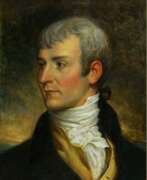

Meriwether Lewis was an American explorer renowned for leading the Lewis and Clark Expedition with William Clark from 1804 to 1806. This historic journey, commissioned by President Thomas Jefferson following the Louisiana Purchase, aimed to map the newly acquired territory, establish trade with and assert sovereignty over the native tribes, and find a water route to the Pacific Ocean. The expedition significantly contributed to the American understanding of the vast western territories and its diverse natural resources, flora, fauna, and indigenous cultures.
After the expedition, Lewis was appointed as the governor of the Louisiana Territory, where his administration was met with mixed reviews. He faced numerous challenges, including political disputes and financial troubles. Lewis's life came to a tragic end in 1809 under mysterious circumstances at Grinder's Inn, Tennessee, where he died from gunshot wounds in what is widely believed to be a case of suicide, though some debate around the circumstances persists.
For collectors and enthusiasts in art and antiques, the story of Meriwether Lewis provides a fascinating insight into early American exploration and the historical context that influenced American art and culture during the early 19th century. His legacy, immortalized through various portraits and memorials, continues to be a subject of interest and admiration.
To stay updated on information and events related to Meriwether Lewis and related historical figures, consider subscribing for updates. This subscription will keep you informed about new discoveries, exhibitions, and auction events, enriching your understanding of America's early exploration history.
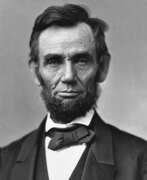

Abraham Lincoln was an American statesman and politician, the 16th President of the United States (March 4, 1861 - April 15, 1865).
The son of a frontiersman and a Kentucky farmer, Lincoln worked hard from an early age and struggled to learn. He was a militiaman in the Indian War, practiced law, and sat in the Illinois legislature for eight years. He was an opponent of slavery and gradually gained a national reputation that earned him victory in the 1860 presidential election.
After becoming the 16th president of the United States, Abraham Lincoln turned the Republican Party into a strong national organization. In addition, he drew most Northern Democrats to the Union side. On January 1, 1863, he issued the Emancipation Proclamation, which declared permanently free those slaves who were in Confederate territory. Lincoln considered secession illegal and was prepared to use force to defend federal law and the Union. Four more slave states joined the Confederacy, but four remained in the Union, and the Civil War of 1861-1865 began.
Lincoln personally directed the military action that led to victory over the Confederacy. Abraham Lincoln was reelected in 1864, and on April 14, 1865, he was fatally shot at Ford's Theatre in Washington, D.C. by actor John Wilkes Booth.
Abraham Lincoln is a national hero of the American people, he is considered one of the best and most famous presidents of the United States until today.
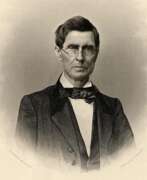

Augustus Baldwin Longstreet was an American politician, lawyer, educator, and writer.
Longstreet received a broad education: he attended Moses Waddell Academy in Willington, South Carolina, Yale University in New Haven, Connecticut, and Tapping Reeve Law School in Litchfield, Connecticut. He served as a Superior Court judge for the Okmulgee Judicial Circuit.
From his youth, Augustus was a prolific and active publicist. In September 1835, Longstreet published his most famous book, Scenes, Characters, Incidents in Georgia, to which poet Edgar Allan Poe gave a rave review. He later published political and religious articles. As owner and editor of the State Rights Sentinel newspaper, he used this platform to express his political views, especially in defense of slavery. Longstreet held slaveholding and secessionist views, personally owning dozens of slaves throughout his life.
Longstreet also served as president at several southern universities, including the University of Mississippi, South Carolina College (now the University of South Carolina), and Emory College (now Emory University).
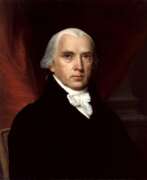

James Madison was an American politician and statesman, the fourth President of the United States (1809-1817).
Madison attended Princeton and studied history, government, and law. He participated in the drafting of the Virginia Constitution in 1776, and in 1780 was chosen to represent Virginia in the Continental Congress (1780-83 and 1786-88). James Madison contributed greatly to the ratification of the Constitution, writing, with Alexander Hamilton and John Jay, The Federalist (1788). He was later called the "father of the Constitution."
In 1792, Madison and Thomas Jefferson (1743-1826) founded the Democratic-Republican Party, which has been called America's first opposition political party. When Jefferson became the third president of the United States, Madison served as his secretary of state. In Congress, he was involved in drafting the Bill of Rights and passing the first revenue legislation. As Secretary of State to President Jefferson (1801-1809), Madison protested to warring France and Great Britain that their seizure of American ships was contrary to international law.
Madison was elected president in 1808, succeeding Jefferson. Continued British interference in shipping, as well as other grievances, led to the War of 1812. During Madison's second term as president, the war was still ongoing, and he and his wife were even forced to flee in the face of advancing British troops who set Washington, D.C. on fire. Despite this, in 1815, the United States declared its victory in the war.
After the end of his second term, Madison remained active in public affairs. He edited his Journal of the Constitutional Convention, was co-chairman of the Virginia Constitutional Convention from 1829-1830, and chancellor of the University of Virginia from 1826-36. He was also Monroe's foreign policy advisor. Although Madison was a slave owner all his life, in the last years of his life he was active in the American Colonization Society, whose mission was to resettle slaves in Africa. James Madison died at the age of 85 in 1836.
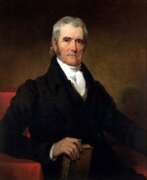

John Marshall was Chief Justice of the United States Supreme Court from 1801 to 1835, Secretary of State, and one of the founders of the American legal system.
During the Revolutionary War, Marshall served first as a lieutenant and after July 1778 as a captain in the Continental Army. In 1781 he left the service, studied law, and began practicing law in Virginia, in Fauquier County, and then in Richmond. He soon became head of the Virginia bar and was a member of the Virginia assembly. In 1788 he took a leading part in the Virginia convention convened to discuss the proposed U.S. Constitution. In 1797-98, along with Charles Cotesworth Pinckney and Elbridge, Gerry Marshall was appointed by John Adams to negotiate with France.
He was Secretary of State under President Adams from June 6, 1800 to March 4, 1801. At the same time he was appointed Chief Justice of the Supreme Court in 1801 and served in that position until 1835.
John Marshall was a personal friend of Washington, he announced his death in 1799, organized his funeral, and delivered his eulogy. Washington's relatives soon asked Marshall to write a biography of the late president. "The Life of George Washington" was published in London in 1804-1807. It includes illustrations, portraits, facsimile letters, and folding maps.
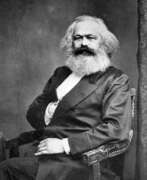

Karl Marx, full name Karl Heinrich Marx, was a German philosopher, sociologist, historian and economist, social activist, and journalist. One of the most significant political figures in the world, his works have had a great influence on the course of human history.
Karl Heinrich Marx was born into a large Jewish family of rabbinic dynasty, but his father and Karl himself were baptized. The young Karl received a liberal arts education at the University of Bonn and the University of Berlin and was actively involved in the turbulent political life of Germany and France in the 19th century. For his political activities in 1849 he was expelled from Germany, moved with his family to Paris and then to London, where he lived and worked until the end of his life.
In 1844 he met the German socialist Friedrich Engels, who became his friend and collaborator for the rest of his life. Together they had already published the Manifesto of the Communist Party (1848), the most famous pamphlet in the history of the socialist movement. Karl Marx was also the author of the movement's most important book, Das Kapital (Capital). These and other writings of Marx and Engels formed the basis of the system of views and beliefs known as Marxism.
Marx examined the very different versions of socialism that existed in the early nineteenth century and combined them into a doctrine that remained the dominant version of socialism for half a century after his death. His emphasis on the influence of economic structure on historical development was of enduring importance.
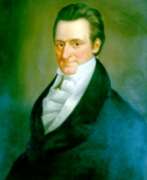

Return Jonathan Meigs, Jr. was a politician, Democrat, Republican, and poet.
Meigs was the son of Jonathan Meigs Sr. (1734-1823), a colonel in the Continental Army during the American War of Independence, graduated from Yale University, where he studied law, and had a colorful political career primarily in Ohio.
In 1798 Meigs was appointed judge of the Northwest Territory and the following year was elected to the territorial legislature. When Ohio became a state in 1803, he became chief justice of the Ohio Supreme Court. Meigs served as senator 1808 to 1810; he was governor of Ohio from 1810 to 1814. Meigs County, Ohio, and Fort Meigs in Perrysburg, Ohio, are named in his honor.
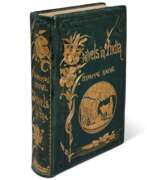

Ardaseer Framjee Moos was a 19th-century Indian politician.
Ardaseer Framjee Moos was educated and later taught at Elphinstone Institute, and was the secretary of the Bombay Native Common Library from 1860 for more than two decades. An active participant in Parsi reform movements and Mumbai political life, he became treasurer of the Bombay Association in 1876. Moos prepared and published A Journal of Travels in India (1871), the illustrations in which are various views of the principal buildings of Lucknow, Agra, Dehli, and Calcutta. He also published dictionaries of English and Gujarati.
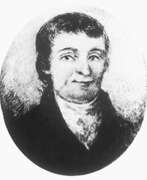

William Munford was an American legislator and court reporter, writer, poet, and translator.
After receiving a law degree, Munford entered politics, represented Mecklenburg County in the Virginia House of Delegates, and was elected to the state Senate. Munford was also a legal reporter for decisions of the Virginia Supreme Court of Appeals, for which he prepared six annual issues a year.
He also published collections of poetry and engaged in translations of classical works, including Homer's Iliad.
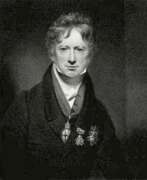

Sir George Nayler was a British officer who served for many years at the Board of Heralds in London.
As a young man, he practiced miniature painting and then pursued a successful career as a herald. As a participant in the historical ceremony, Nayler compiled a complete pictorial and written account of the coronation of King George IV on July 19, 1821, which was completed after his death.
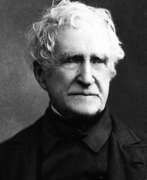

John Neal is an American writer, editor, and community activist.
Neal served for many years as editor of the Yankee and Boston Literary Gazette periodicals, publishing critical essays and always striving to promote American literature. While living in England in the 1820s, he wrote a long series of articles published in Blackwood's Edinburgh Magazine, essentially telling the story of American literature, which helped change the perception of American art in Britain.
Back in America, he used his popularity and influence to support young writers such as Poe and Whittier. In particular, it was Neale who put Edgar Allan Poe's very name in print and the very first words of encouragement to his work.
Neal's early recognition of Poe's genius was crucial to the budding talented writer's career. John Neel also wrote long adventure novels with complex plots, of which "Rachel Dyer" is considered the best, and "Bag Otter, Chief of the Oneida" and "David Whicher" are his best stories.
John Neal was also a very active social and political activist. In his literary work and lectures, he constantly addressed issues such as feminism and women's rights, slavery, the rights of free black Americans and American Indians, temperance, sports, and many others.
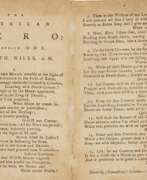

Nathaniel Niles is an American lawyer and politician, a member of the House of Representatives from Vermont.
Niles attended Harvard College and the College of New Jersey, eventually becoming a preacher but also active in politics. Niles sat in the lower house of the Vermont legislature for eight terms. From 1784 to 1787 he was a member of the state supreme court.
In addition to his sermons, he published numerous theological articles. When the American Revolution broke out in 1775, Niles enthusiastically supported the war against England. He even wrote his only work of poetry, an ode entitled "American Hero," to commemorate the Battle of Bunker Hill, which was set to music and became quite popular among New England soldiers and militia.
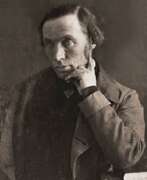

Robert Dale Owen was a British-born American social reformer and political activist, newspaper editor and writer.
The son of English reformer Robert Owen, Robert Dale Owen was imbued with socialist philosophy in the Scottish town of New Lanark, the elder Owen's model industrial community. In 1825, father and son emigrated to the United States, where they founded a successful socialist community in New Harmony, Indiana.
Robert Dale Owen edited the New Harmony Gazette, worked with reformer Fannie Wright, visited Europe, then edited the Free Enquirer newspaper. This newspaper was the center of radical free thought in New York City: it opposed evangelical religion, advocated more liberal divorce laws, a more equal distribution of wealth, and widespread industrial education.
Owen served three terms in the Indiana legislature, where he advocated public funds for public schools, and two terms in the U.S. House of Representatives, where he introduced a bill to establish the Smithsonian Institution. For several years in the 1850s, Owen represented the United States as a diplomat in Naples and Italy. Upon his return in 1858, he became an outspoken supporter of emancipation. And at the outbreak of the American Civil War, in a letter to President Lincoln, he called for an end to slavery, a letter that Treasury Secretary Salmon Chase said greatly influenced the president.
In 1863, Owen chaired a committee to study the plight of the freedmen and wrote the book The Wrongness of Slavery. The town of Dale, Indiana, is named in Owen's honor.
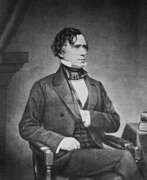

Franklin Pierce was the 14th President of the United States of America (1853-57).
Pierce entered political life in New Hampshire as a Democrat, serving in the state legislature, the U.S. House of Representatives, and the Senate. Pierce saw the abolitionist movement (which sought to eliminate slavery in the country) as a fundamental threat to the unity of the nation, and alienated anti-slavery groups by signing the Kansas-Nebraska Act and enacting the Fugitive Slave Act.
The results of his presidency were generally so poor that Democrats refused to allow Pierce to run again. Years later he died in obscurity, accused of betraying the nation and disgraced. Historians and scholars generally rate Pierce as one of the worst U.S. presidents.
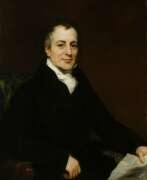

David Ricardo was a British economist and a classic of political economy.
David's father, a stockbroker, came from a Jewish family and emigrated from Holland to England in the early 1770s. After his studies, young David was hired by the London Stock Exchange and worked with his father, but at the age of 21 he broke away from his family. He soon started his own business as a dealer in government securities and became rich very quickly. At the age of 27, Ricardo became seriously interested in economics and from 1809 began to publish articles in the press on topical issues of currency and economics. He met the economist James Mill, who became his political and editorial adviser. He also befriended the utilitarian philosopher Jeremy Bentham and Thomas Malthus.
Ricardo's major work was On the Principles of Political Economy, and Taxation, published in London in 1817. It was a fundamental contribution to economic science and the first systematized approach to the subject. In this work, Ricardo addresses the "main problem of political economy," defined as determining the laws governing the "natural course of rents, profits, and wages" over time. He also develops ideas advanced in Adam Smith's The Wealth of Nations (1776), outlining a new labor theory of value, as well as theories of international competitive advantage and the effects of taxation. Ricardo was the first to formulate the "classical" system of political economy, and his ideas dominated economic thought throughout the 19th century.
By the age of 41, David Ricardo had completely retired from business and began to lead the quiet life of a gentleman and landowner on his estate. In 1819, Ricardo was elected to the British Parliament as an independent representative of a district in Ireland.
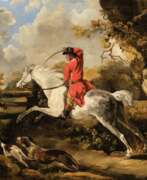

Charles Lorraine Smith or Charles Loraine was a British artist, politician and sportsman.
Lorraine was an avid horseman, an excellent hunter and an amateur painter at the same time. Contemporaries wrote that his paintings were the result of a happy combination of his hunting experience and artistic talent. Indeed, his works depicting hunting scenes and horses were very successful. Lorraine also drew caricatures mocking some of the customs of hunters, such as when they smoke while fox hunting.
Charles Lorraine Smith was a Member of Parliament and High Sheriff of Leicestershire.
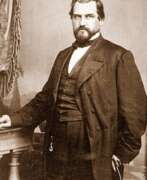

Amasa Leland Stanford was an American politician, industrialist and entrepreneur, and founder of Stanford University.
Born into a wealthy family, Stanford earned a law degree and practiced law in Wisconsin, and soon built a lucrative business selling mining equipment in northern California. And of course he became involved in politics, first as a justice of the peace and in 1861 was elected governor of California, but he didn't move away from business either.
As a member of the "Big Four" of the Central Pacific Railroad (CPRR), he was involved in planning the eastern section of the transcontinental railroad and helped secure major public investments and land grants for the railroad project. In 1863, Stanford became president of the Central Pacific Railroad and held that position for the rest of his life. He was also president of the Southern Pacific Railroad (which was acquired by the CPRR) and owned many of the construction companies that built the railroad. At the same time, he served in the U.S. Senate from 1885.
In 1891, he and his wife Jane Stanford founded Leland Stanford Junior University in memory of their only child, Leland Stanford, Jr. who died in his teens of typhoid fever during a trip to Italy.
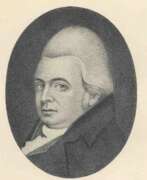

Royall Tyler, real name William Clark Tyler, was an American politician, lawyer and judge, playwright, essayist and educator.
He graduated from Harvard University, was admitted to the bar, and in 1801 was appointed a justice of the Vermont Supreme Court. In 1811, Tyler was appointed professor of jurisprudence at the University of Vermont.
Royall Tyler is best known today as the author of the first American comedy, Contrast, which premiered in 1787 at the John Street Theater. This play is the first to feature a Yankee character, a character native and familiar to local audiences, and the forerunner of many such in later years.
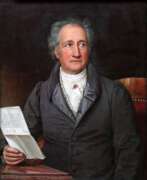

Johann Wolfgang von Goethe, a German polymath and writer, is celebrated as one of the most influential figures in the German language and Western culture. His vast array of works spans poetry, novels, plays, and scientific writings, reflecting his diverse interests and profound impact on various fields.
Goethe's early life in Frankfurt laid the foundation for his diverse interests. After studying law, he gained fame with "The Sorrows of Young Werther," which led to an invitation to the Weimar court. His contributions there were significant, including roles in the ducal council, mining supervision, and cultural endeavors like theater management and the botanical park's planning.
His literary achievements are vast, with notable works like "Faust" and "Wilhelm Meister's Apprenticeship," which delve into human nature and societal reflections. Goethe's "Sturm und Drang" period was marked by intense emotion and a break from traditional forms, influencing subsequent cultural movements.
Johann Wolfgang von Goethe's interest in science is equally noteworthy. He made contributions to biology, zoology, and color theory, advocating for a holistic view of nature and expressing skepticism toward restrictive scientific methodologies. His works in these areas reflect a deep desire to understand and articulate the natural world's interconnectedness.
For art collectors and experts, Goethe's influence extends beyond his literary and scientific contributions. His role in Weimar Classicism and his artistic endeavors offer rich insights into the period's cultural landscape, providing a multifaceted perspective on his legacy.
To stay informed about developments and events related to Johann Wolfgang von Goethe, consider signing up for updates. This subscription will keep you informed about new product sales and auction events related to Goethe's works and influence, offering exclusive insights for enthusiasts and collectors.
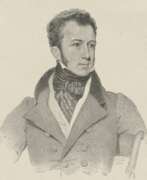

Edward Gibbon Wakefield was a politician, economist, writer and one of the British masterminds behind the colonization of Australia.
Edward was born into a respected Wakefield family in London, received a good education and served in the British Foreign Office. However, he was convicted for a marriage adventure and, sitting in prison, thought out a policy of colonization of Australia and New Zealand. In 1929, Wakefield published "An Outline of a Proposal for the Colonization of Australasia" and then published "A Letter from Sydney: the Chief City of Australia" on behalf of a certain expert on Australia. He proposed a scheme now sometimes called the Wakefield Scheme: it was aimed at settling the new colony of South Australia with able-bodied laborers, traders, artisans, and representatives of capital. It was to be financed by the sale of land to capitalists, who would thereby support other classes of emigrants. The colony was founded on December 28, 1836.
Wakefield was also the inspiration for the Durham Report (1839) on Canadian colonial policy. Wakefield subsequently created the blueprint for the Church of England settlement, Canterbury, on the South Island of New Zealand. From 1847 to 1850 the bulk of the "Canterbury Pilgrims" emigrated there, and in 1853 Wakefield became a member of the New Zealand General Assembly.
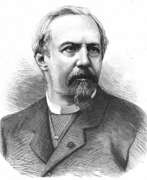

Arthur Warocqué was a Belgian industrialist, philanthropist, politician and artist.
He was the managing director of the coal mining companies Charbonnages de Mariemont and Bascoup, a member of the Belgian House of Representatives, and a collector.
Warocqué also had a passion for painting, studying under the Belgian illustrator Paul Lauters (1806-1876). While traveling through Scandinavia as a young man, Warocqué captured views of Sweden, Norway, and Lapland, from which he published a series of prints.
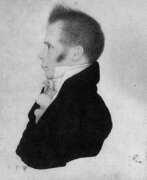

George Watterston is an American politician, author and journalist.
He graduated from the Charlotte Hall Military Academy with a law degree. But, apparently, he soon became so disappointed in the profession that he began to write poetry and prose, in which he portrayed lawyers in a very unsightly form. His first novel "The Lawyer, or The Man as he ought not to be" Watterston published in 1808. This poignant novel is ostensibly a confession of a corrupt lawyer and seducer in the spirit of Stephen Burroughs' Memoirs of Stephen Burroughs. Watterston's ironic take on the didactic novel straddles the line between Charles Brockden Brown's gothic thrillers and dark comedy. He also wrote the novel Glencarne or the Disappointments of Youth (1810), the play Child of Sentiment (1809), and the poem Scenes of Youth (1813), among others.
After the end of the War of 1812, President James Madison appointed Watterston as Librarian of Congress, the third person to hold the position and the first to be solely responsible for it. He held the position from 1815 to 1829.
In 1813, Watterston became editor of the Washington City Gazette. And after his dismissal from Congress, he became editor of the National Journal. He continued a productive literary and journalistic career until his death.
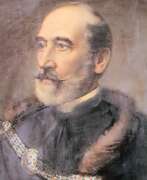

Béla Wenckheim is a Hungarian politician.
Baron Béla Wenckheim was an aristocratic landowner from the Wenckheim family, chief bailiff of the Békés County, first Minister of the Interior of Hungary in the Andrássy government, then Prime Minister of the Kingdom of Hungary in March-October 1875.
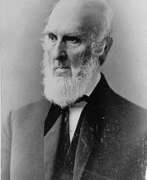

John Greenleaf Whittier was an American poet, essayist, and member of the American Anti-Slavery Society.
Whittier devoted 30 years of his life to the fight against slavery. Only after the Civil War, already at a mature age, he was finally able to engage in his favorite pastime - poetry. Past his fascination with Burns, Whittier became an eloquent advocate of justice, tolerance, and liberal humanism. He has been called "America's finest religious poet" for the high spiritual and moral values he extolled, and many of his poems are still sung as church hymns.
Whittier also wrote about the region's past, about life in New England before industrialization. In late nineteenth-century America, Whittier was second only to Henry Wadsworth Longfellow in popularity. His most famous poem, "Bound by Snow," was published in 1866. Whittier was also a longtime editor of the New England Weekly Review.
